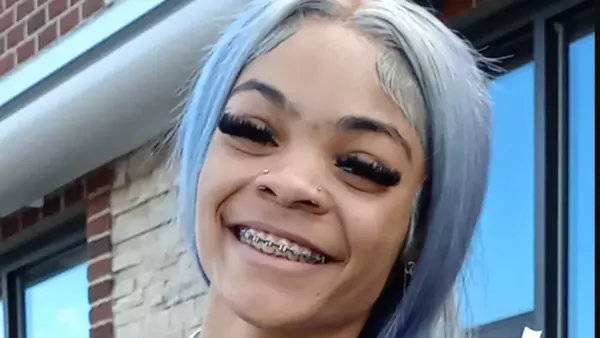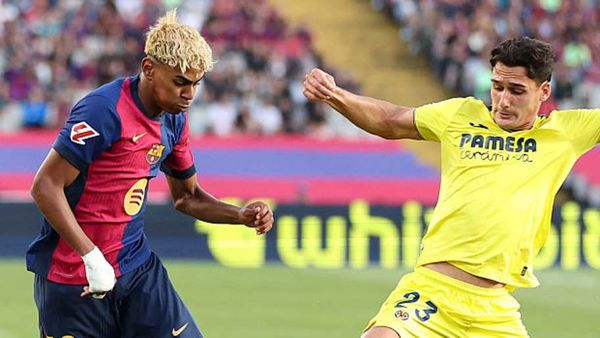
Gough Whitlam had “It’s time.” For Barack Obama, it was “Yes we can.” Five days out from the Victorian election, opposition leader Matthew Guy has opted for: “We are safe.”
At a final event for party faithful on Monday, Guy launched the Coalition’s “real solutions plan”, which he described as the most comprehensive policy agenda an opposition has ever brought to a Victorian election.
Over 94 pages, the document details 200 policies the Coalition has developed during its four most recent years in opposition, of which Guy has been the Liberal leader for 14 months.
“We have learned a lot in our eight years in opposition. I have learned a lot since the 2018 election and you can see from this document that we do have a very clear and comprehensive plan for Victoria’s future,” Guy told the crowd.
“I’d say to a lot of people who are disenchanted with Daniel Andrews, but are not yet sure if they will vote for me, my message to you is very clear: We are safe. We are sensible. We are centrist, and mainstream. You can trust me and my team with your vote.”
The event was a deliberate attempt at a reset after a nightmarish few days for the Coalition. On Thursday it was revealed the Victorian electoral commission (VEC) referred Guy and his former chief of staff to the state’s corruption watchdog, claiming they had not cooperated with its investigation a potential breach of funding and disclosure laws.
The party responded the following day by issuing a “cease and desist” notice to the VEC and accused it of “serious, deliberate and unprecedented interference” in the election.
On Saturday, the Age revealed Liberal upper house candidate Renee Heath’s involvement with the City Builders Church that her father leads, which is opposed to gay, transgender and reproductive rights.
Guy responded by announcing she would not sit in the Liberal party room once elected on 26 November, as it was too late to disendorse her.
On Sunday, he was forced to defend another Liberal candidate, Timothy Dragan, who apologised after he was recorded making comments against Aboriginal recognition, climate change and abortion.
The past five days have been emblematic of the 14 months Guy has endured since returning to the Liberal leadership.
While he has been busy attempting to demonstrate the Coalition’s credentials as a legitimate alternative – and moderate – government, including by committing to legislating a 50% emissions reduction target by 2030 and pledging not to make any changes to laws banning gay conversion practices, the behaviour of those around him has dominated headlines.
They include his close friend, outgoing Kew MP Tim Smith, who was caught drink-driving in November last year, rightwing MP Bernie Finn, who was booted from the party over his comments on abortion in May only to be replaced by Moira Deeming, who shares similar views.
There was also the aforementioned donor scandal that claimed Guy’s chief of staff and, subsequently, his communications director and diary manager. More staff have left during the campaign, including the party’s chief counsel.
“That’s politics. I’ve been around for a long time and I understand that,” Guy said, when asked if he was frustrated by the events of the past few days.
In his first stint as leader, Guy took the Coalition to the 2018 election, where it shed 10 of its 37 lower house seats, including the blue-ribbon seat of Hawthorn.
An internal review into the loss found the ousting of Malcolm Turnbull as federal party leader had a major impact, but it was also scathing of the party’s law and order led strategy and focus on “African gangs”.
This time, law and order has played little role in the campaign. This is despite crime increasing “significantly under Daniel Andrews”, according to the “real solutions plan”, which outlines $200m for new and upgraded police stations over four years and 500 new protective service officers in its final pages.
Instead, Guy’s pledge not to build the Suburban Rail Loop and invest the money into 20 new and upgraded hospitals, $2 metropolitan train tickets and half-price regional fares and free lunches in public schools have dominated airtime.
With the state’s deficit having grown in the latest two budget updates and debt now forecast to reach $165.4bn by 2025/26, he said the policies as “financially modest, targeted and in some instances time-limited”.
“I can’t afford to do everything,” Guy said.
After its 2018 election pummelling, the Coalition needs to win 18 seats to form government.
Key to Guy’s success will be winning back Melbourne seats Labor took off the Liberals in 2018, which party insiders have grown more confident about, along with regional seats from Labor and the independents.
Guy said the party is also looking to Melbourne’s growth areas, which have traditionally been Labor heartland.
“There is a real feeling that this government has abandoned them … and we can see that in Victoria’s regions as well,” he said.
“When the government governs for a select few, predominantly when there’s tram tracks, and leaves country and regional Victoria and Melbourne’s outer suburbs with very limited benefit from eight years in office then they do have a right to feel aggrieved and you can feel that in those outer suburbs.”
Tony Barry, a former senior staffer to Guy and now a political consultant with RedBridge, said Guy’s speech on Monday was directed to “soft” voters, some of whom are Labor voters likely to change their mind.
“He wants to give them the comfort and confidence that he’s a safe pair of hands and that they can take a chance,” Barry said.
“This week we’re going to Labor really sharpening their attacks on the Coalition and trying to stop that soft vote segment, who don’t like Andrews, from taking [it].”







